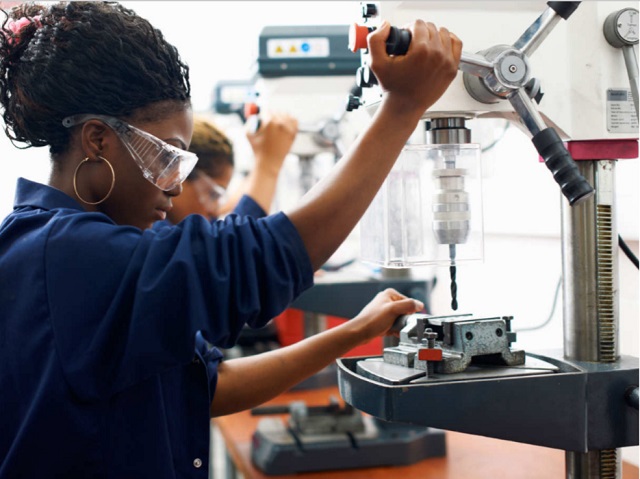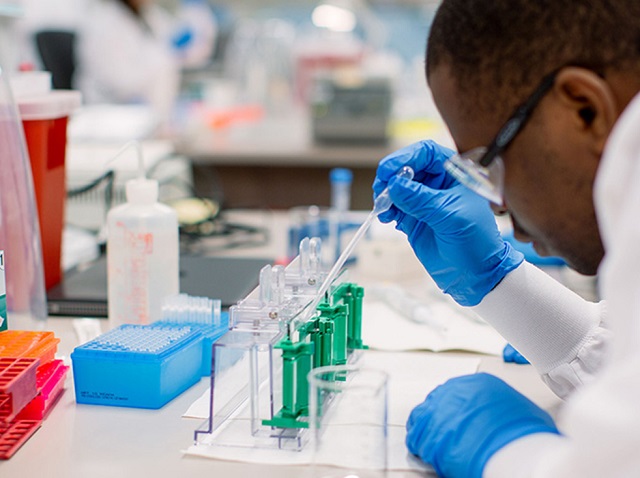
The need for aggressiveness in Science, Engineering and Technology development
NEW ANALYSIS | PROF. Dr. Eng. KANT ATEENYI KANYARUSOKE, M-ASHRAE, M-SASEE | Different political parties are in advanced stages of writing up their manifestos for next year’s elections. The NRM for example, set up the Prof. Kamuntu committee to draft a so called Science – led manifesto in July/August. By now, they might be done with the assignment.
New kid on the block, NUP leader Kyagulanyi recently outlined a 5-point program that would emphasise the performing Arts and Sports in addition to rewarding high performing future academics. It is neither my intention nor duty to critique either of the two.
In the interest of industrialising Uganda – primarily using resources and geopolitical opportunities available to her, I will argue for a heavy (even compulsive), shift to massifying science, engineering and technology (SET) to create a nation of down-to earth innovators in one of the most underdeveloped regions of the world. Many people normally add maths (to form STEM) but I will leave that as a given, since it is required even in non SET areas.
First, a few clarifications – which many peope tend to mix up: ‘Science’ deals with getting to know laws that govern natural phenomena we observe. The phenomena, like falling down when we jump, or falling sick when specific bacteria/viruses/fungi enter our bodies, already exist – and we initially have no control on them.
Engineering deals with the art of using science to create situations and systems where combinations of some of these phenomena eventually benefit human society or sections of it. For example, at its simplest, aircraft flying is first a balance between gravity (being pulled down) and a ‘pushup’ by air moving horizontally, followed by a ‘pushforward’ by gases being ejected backward from the engines. Or Typhoid prevention by boiling the drinking water, is through killing the causative salmonella typhi germs in the contaminated water by ‘cooking’ them.
On the other hand, Technology is simply a way of doing things. It is a skilled art of the doer, but unlike engineering, it does not necessarily require understanding of the science behind what is being done (although that would help). Thus, the great banyakitara iron workers of the 15th century, had no clue of chemistry’s periodic table or of the iron-carbon phase diagram. Their gifted medicine women had no clue on antibodies and blood groups when they were immunising people against smallpox even as Europe, and later, South America, were being depopulated by the disease. Today, most people who use cellphones, have no idea about semiconductors while many of those using face masks against COVID are doing so because they are being forced.
Uganda needs to popularise science so that a majority of our people can understand – even in simple ways – why and how natural events occur, or even how actions on material and energy resources can impact on present and future generations.
Mythology, witchcraft, sorcery, night dancing, and surrender to ignorance in name of ‘predetermined’ fate or even of ‘supernatural’ powers, ought to be banished from minds of all our peoples through popular science.
Enlightened political leadership ought to come out clearly on how by end of 2026, there will hardly be a child sacrificed in search for riches in Uganda. Or how it will go about ensuring ignorant rural folks in so called cattle corridors, stop denuding lands settled on as they give up nomadism and work on limited land areas. There are many other issues one could cite to push for popularising science but let us turn to Technology.
The way our people do things: how do they produce and/or acquire the necessities and luxuries of life: food, water, energy, shelter, clothing, communication, movement, medicine, entertainment, etc.?
 By 2026, will our food still be produced majorly by either the wooden or the metallic hoe? How much transition to other modes of production will have been made? The population of the country might have surpassed the 55 million mark by then. How will we be housing these people? And the education of the incoming five to seven million kids then; the health of the extra 10 million plus, people, on top of the increasing proportion of older ones: what and how much facilities and infrastructure do we need to put in place for them – and how shall it be kept in ‘tip top’ condition? In services, are we to continue being a nation of petty traders, a dumping ground for cheapies from elsewhere and a consumer of discarded textiles from the developed world? What do we need to do in our national parks and on other nature’s gifts to attract say, 10 million tourists annually by 2026? Is it enough to keep singing we are ‘gifted by nature’? Many more questions can be asked but most importantly: who will do these things for us – with a passion?
By 2026, will our food still be produced majorly by either the wooden or the metallic hoe? How much transition to other modes of production will have been made? The population of the country might have surpassed the 55 million mark by then. How will we be housing these people? And the education of the incoming five to seven million kids then; the health of the extra 10 million plus, people, on top of the increasing proportion of older ones: what and how much facilities and infrastructure do we need to put in place for them – and how shall it be kept in ‘tip top’ condition? In services, are we to continue being a nation of petty traders, a dumping ground for cheapies from elsewhere and a consumer of discarded textiles from the developed world? What do we need to do in our national parks and on other nature’s gifts to attract say, 10 million tourists annually by 2026? Is it enough to keep singing we are ‘gifted by nature’? Many more questions can be asked but most importantly: who will do these things for us – with a passion?
Is it not clear that it must be us, Ugandans to do so – and in ways that make us a truly competitive nation? Hence, the need to popularise different and easier ways of doing things. On this, it simply cannot be a ‘No change’ affair. Once again, our politicians ought to come out very clearly on how the necessary technologies will be championed in their manifestos.
Finally I come to Engineering. In transforming our society, Technology as discussed above is a ‘must have’. However, the issue is how does it come about and at what cost? In the long past, it came about intituively, and often through trial and error. It still can, but that is a very expensive and tedious approach. Since the first industrial revolution, many societies have tended to acquire it through buying or copying or sometimes stealing it.
In post colonial Uganda, buying has been the dominant mode. Elsewhere in rapidly industrialising countries, any of the above three modes is usually accompanied by improvements through what we call reverse engineering followed by reengineering. Then, new technologies emerge. Thus today, Technology is mainly created by Engineering. Not only that, it is maintained and sustained by the same. The advantage of this is that you can then claim to ‘own’ it if it is unique enough. In which case, you can sell it to others.
This brings us to the thrust of my argument on forthcoming manifestos. Because Uganda is (apart from the Eastern side) surrounded by relatively underdeveloped areas – especially in the north and west, one would like to see manifestos pushing for development and sale of technologies to these regions. These regions are our natural and even historical markets. Now that we are relatively better off – and have good roads leading to them, it is time to do both low and higher level technology business with them. Particularly for President Museveni the pan Africanist, it would be a great honour to him, if his party manifesto pushed Engineering to cultivate and nurture creative talent in service of both Ugandans and other African peoples around us. And for our youthful Kyagulanyi’s NUP, that would be a flying start.
****
Prof. Kanyarusoke is a pan Africanist Engineering Educator in Cape Town. He used to run ‘Science Made Easy’ radio programs on VOT Fort Portal, Radio West Mbarara, and LBS, Hoima.
 The Independent Uganda: You get the Truth we Pay the Price
The Independent Uganda: You get the Truth we Pay the Price



